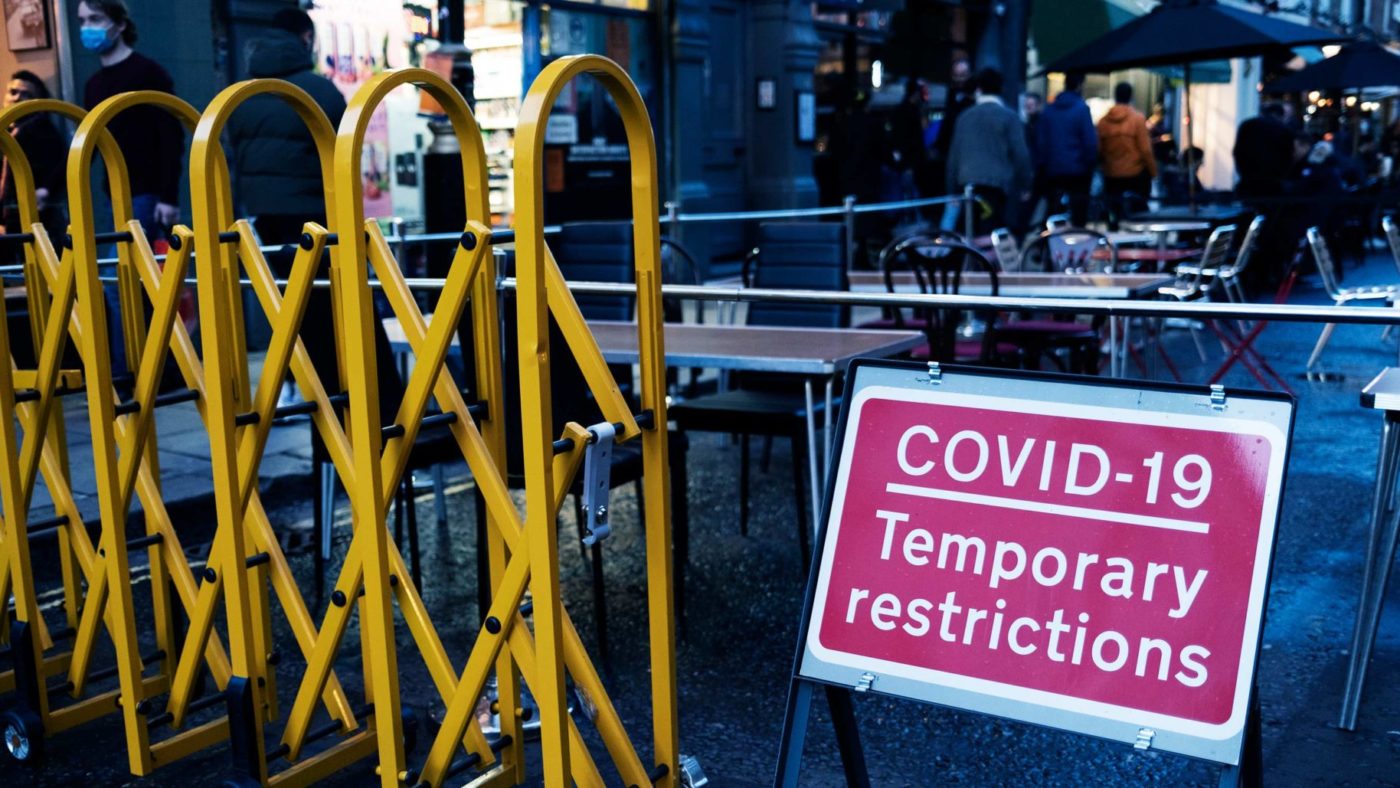Over the course of the coronavirus nightmare the Government has repeatedly failed to publish impact assessments and explain how it arrived at a particular policy measure or restriction. When it did finally share the long-awaited cost-benefit analysis of the tier system (after weeks of pressure from Tory MPs), it turned out to be a dossier so thin on detail that it read more like a justification for the Government’s decisions than a true evaluation. Whatever your view on the merits of the Covid strategy, this was tantamount to a dereliction of duty, and it largely went unnoticed by the media or general public.
Economics is the science of not having your cake and eating it. But while the war on Covid has been a balancing act between public health and the economy — hence the tension between the Health Secretary and the Chancellor — it is hard as a spectator to understand what trade-offs are being made and why.
The jury is still out on whether lockdown has been the right strategy. And now that the vaccine is here, thank you big pharma, we have the hope that by Easter it’ll be consigned to the dustbin of history.
But as a new paper from the Institute of Economic Affairs points out, the Government has relied almost exclusively on the advice of epidemiologists and health professionals, largely ignoring the input of economists. Surely it is the job of policymakers to weigh up the costs and benefits of a particular measure in the round – pandemic or no pandemic?
‘Turning a blind eye: Have policymakers ignored economists during the pandemic?’, by Professor Paul Ormerod, explains how Covid has exposed the pressing need to involve economists in the handling of future health crises. Their insight could help shape policymaking, and ensure future mistakes are avoided.
For instance: gimmicks of the Eat Out to Help Out ilk were bound to change people’s behaviours, leading to the predictable surge in cases and the charade to which we’re now all accustomed: press conference, u-turn, the inevitable battening down of hatches, and the gradual erosion of public will and trust.
But the Government failed to take into account economists’ insights on changing human behaviour. At the start of the pandemic, the initial justification for national lockdown was the modelling by Professor Neil Ferguson of Imperial College London that predicted a bloodcurdling 510,000 deaths. Epidemiological models do have real scientific value, but epidemiology is about the process by which a disease spreads, for any given set of behaviours. It is not about understanding how behaviour might be changed so that it is different in the future to the past – particularly when faced with a specific risk.
The Government chose to ignore the advice of Barry McGormick, former chief economist at the Department of Health, who showed that the lockdown policy failed to pass the standard public sector cost-benefit test: the value of lives saved would have been £2.1bn at a cost of £7.3bn to national output.
And when it came to the test-and-trace regime, policymakers badly misunderstood the role of economic incentives. The fine of £10,000 for failing to self-isolate may well have been counterproductive. Why supply the correct personal information in the first place if you risk losing work as a result of being forced to self-isolate at home?
Ministers may also have been influenced by the numerous polls showing that people remain broadly supportive of lockdown measures. Even this week, 71% of the public support the UK going back into another national lockdown. But this fails to take into account is the difference between what people say to a pollster and what they do in real life (‘revealed preferences’, to use the economists’ jargon). In reality, compliance is dwindling, suggesting that many people are fed up with the endless restrictions.
While these lessons may help us prepare for future pandemics, the most urgent task now is to rapidly roll out the Pfizer vaccine and any others that are approved. With uptake bound to be low among some groups – and not just the hardcore anti-vaxx loons – identifying the right incentives will be vital, and a cash injection could be just the ticket. Instead of threatening the public with fines for not having the vaccine, a small payment of, say, £25 would go some way to encouraging the more hesitant to get their jab. It would amount to a drop in the ocean in the grand scheme of Covid spending, and, with the promise of normality just around the corner, I’d say it promises a solid rate of return.
Click here to subscribe to our daily briefing – the best pieces from CapX and across the web.
CapX depends on the generosity of its readers. If you value what we do, please consider making a donation.


